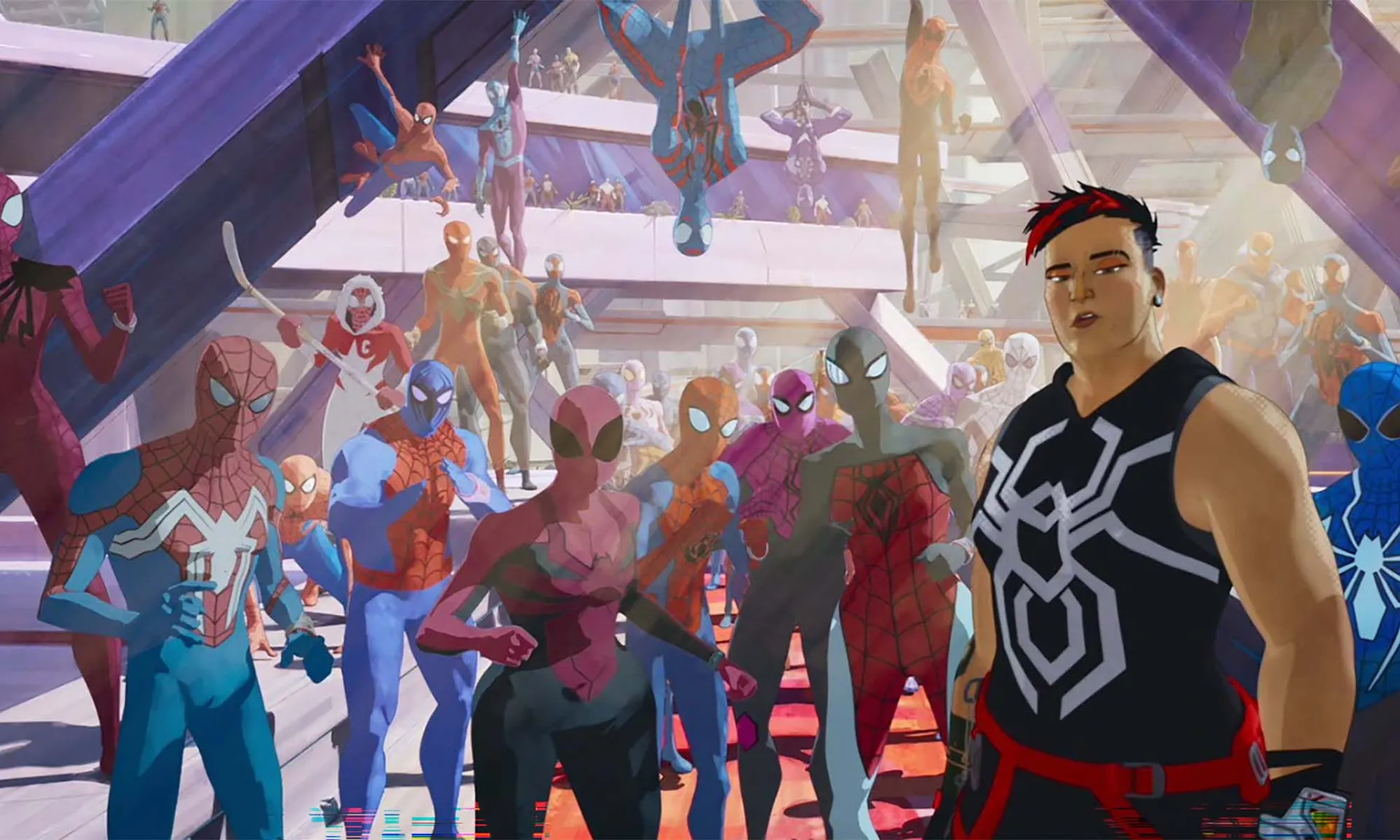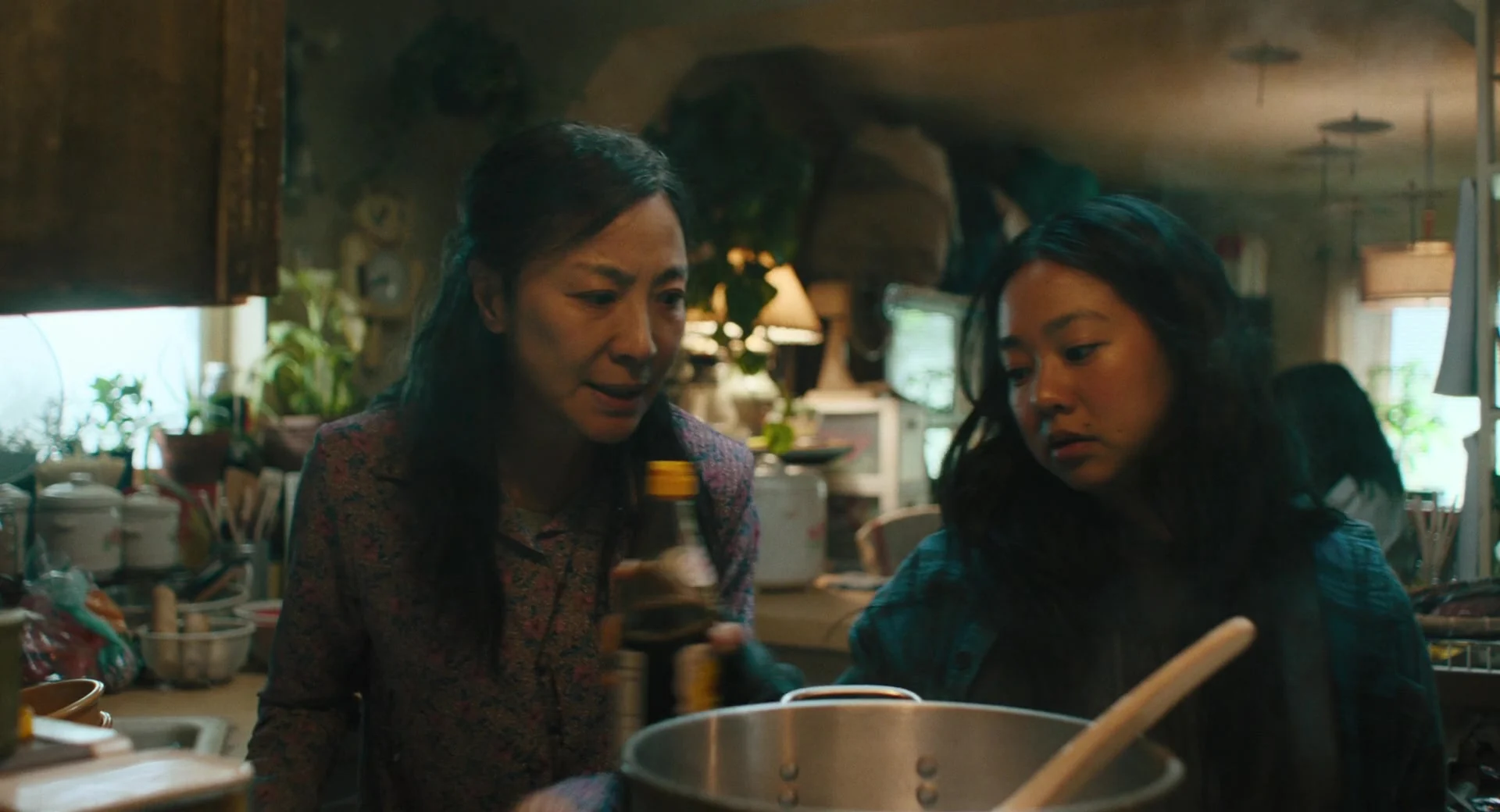by Jack Loney
Sony Pictures’ Spider-Man films Into the Spiderverse and Across the Spiderverse movies are— according to critics, animation nerds, and superhero fans alike— two of the best contributions to the animation canon. The films are a mixed-media portrayal of various Spider-Men being kicked out of one series’ universe and into another, forced to collaborate with alternate-reality versions of themselves to find their way home. It is part of a larger trend in the film industry: Disney’s contributions to Marvel’s arsenal of films are overwhelmingly concerned with the existence of and travel through a multiverse, from their uniting of the live-action Spider-Men in No Way Home, to the plot of the most recent Doctor Strange and Ant Man films.
Outside the film industry, the concept of a multiverse has found its way into television, novels, podcasts, and games. These days, where there is sci-fi or fantasy—and even where there isn’t, sometimes—there are sure to be portals to other realms, a device that lets a hero hop between timelines, or a face-off between a character and a Bizzaro version of themself.

Why are we—sci-fi and fantasy fans, movie buffs, anyone labeled a creative—so drawn to the idea of a parallel universe? Are we all pawns in a chess game being played by studio execs who noted Marvel’s success at the beginning of the trend? Is there something in the water?
There’s an answer to one of those: there is something in the water. Microplastics, mostly, and a little too much glacier ice. This cultural artistic focus on the multiverse coincides with a time defined by heightened sense of climate anxiety as well as political awareness. And when a person is faced with what feels like an intolerable amount of hopelessness, they often turn to fantasy.
Speculative fiction has often served as a way for people to present their visions of a future different from the one they currently feel doomed to experience; fantasy and sci-fi can offer proposals for alternatives to the disasters that storytellers see looming on the horizon. If elves and androids can find a way to live through apocalypse, so the stories go, then so can the humans they are based on.
The multiverse presents a different sort of vision. It tells us that no, we can’t live through this, but we don’t have to, because we can abandon our present at any time for a new one with a brighter future. It has all the hope of fantasy, but it rings hollow without a call to action. Multiverses (multiversi?) offer the same sort of non-solution to our problems as proposals to colonize Mars or ideas of homesteads on the sea. They all say: there’s no way through, but if you’re good enough, there is a way out.
But the opposite is true: there is no way out. We cannot leave our world behind via spaceship or magic portal. And if we accept that our world is a lost cause, and that a spaceship or magic portal is our only salvation, then there is no way through either.
When a multiverse story does manage to hold up a mirror, instead of a realistic tunnel painted onto a brick wall, it comes down to the idea of choice. It sees the exhaustion in its audience that creates the urge to scrap this life and choose a different one, but it doesn’t validate. Everything Everywhere All At Once, in all its Oscars-sweep glory, grants its protagonist and her daughter access to every possible timeline, from a world of endless success to a rock-filled wasteland where human life never began, and in the end (spoiler alert) they choose the one they began in. Evelyn’s happy ending, even in the middle of a multiverse, is running her laundromat with her family.

This is the future that we must sell ourselves: one where we find more to look forward to in the world we have, where our unsatisfying present doesn’t have to break the space-time continuum to lead us to a satisfying future. If our heroes have exhausted all the options our universe can offer, then time must be running out for us, too. But if our heroes can save the future using only the here and now, then maybe, so can we.